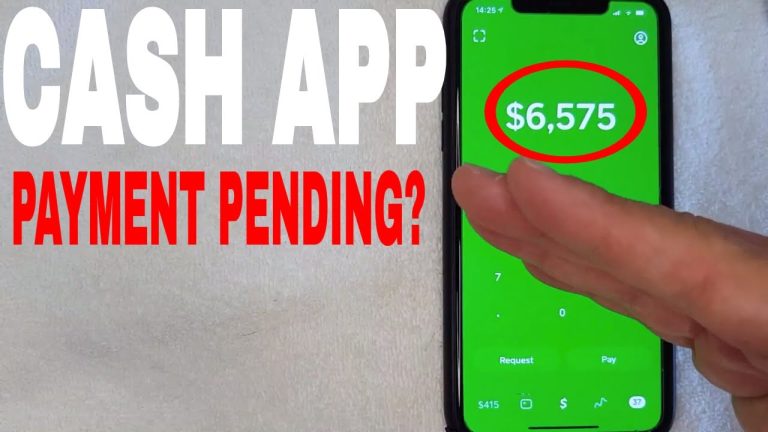6 Types Of Scam Call You Should Track On Child’S Phone

If you have children, then you know that they are always on their phones. And while this can be a great way for them to stay connected with their friends, it can also be a way for scammers to target them. Here are 6 types of scam calls you should track on your child’s phone:
1. Robo-calls: These are automated calls that often attempt to sell something or solicit donations. They may also try to trick people into thinking they are from a legitimate company or government agency.
2. spoofed calls: This is when a caller ID is faked in order to disguise the real number and identity of the caller.
The caller may pretend to be from a bank or other institution in order to get personal information like account numbers or Social Security numbers.
3. phishing calls: These are calls that try to get people to divulge personal information like passwords or credit card numbers by pretending to be from a trusted source. For example, someone may claim to be from your child’s school and say they need his or her social security number for records purposes.
4. debt collection calls: Debt collectors may call repeatedly and use aggressive tactics in an attempt to collect on unpaid debts, even if the person being called does not actually owe any money.
5. scams related to current events: Scammers often take advantage of current events such as natural disasters or political unrest to trick people into giving them money or personal information.”
There are a lot of different types of scam callers out there, and it can be tough to keep track of them all. But if you have a child who uses their phone for calls, it’s important to be aware of the six most common types of scam calls so you can help protect them from becoming a victim.
1. The “Can You Hear Me?”
Scam This is a common scam where the caller will ask you a question like, “Can you hear me?” If you answer yes, they’ll then try to use your voice recording as confirmation that you’ve agreed to something, like making a purchase or signing up for a service.
Be very careful about answering questions from unknown numbers, and never give out any personal information.
2. The “IRS” Scam This one tends to pick up around tax season.
The caller pretends to be from the IRS and tells the person they owe money. They’ll often threaten legal action if the payment isn’t made immediately. Again, never give out any personal information or send money to someone you don’t know.
You can check with the IRS directly to see if you actually owe anything before taking any further action.
3. The “Technical Support” Scam In this scam, the caller poses as technical support for a computer or software company like Microsoft.
They’ll tell the person they need access to their computer in order to fix an issue or provide updates and then proceed to install malware once they have remote access. If you get this type of call, hang up immediately and do not give them any information about yourself or your computer. And if you’re actually having technical issues with your computer, only seek help from trusted sources that you know are legitimate businesses.
What are Some Signs That a Phone Call is Actually a Scammer?
There are a few key signs that can help you determine if a call is from a scammer. First, scammers often use spoofed caller ID information to make it look like they are calling from a legitimate company or government agency. They may also try to rush you into making a decision or providing personal information before you have time to think about it.
Finally, scammers may threaten you with legal action or financial penalties if you don’t comply with their demands. If you receive a call that seems suspicious, hang up and call the organization back at a known, legitimate number to verify the request.
Can-Spam Calls Be Traced?
Yes, spam calls can be traced. The best way to do this is to use a reverse phone lookup service. This will allow you to find out who the caller is, where they are located, and what their phone number is.
You can then block the number and report it to the authorities.
What is a Suspected Spam Call?
A spam call is a phone call that attempts to sell you something or promote a service. These calls are usually unsolicited, and the person on the other end may not be someone you know. Spam calls can be annoying and intrusive, especially if you’re getting them all the time.
If you think you’re being spammed, there are a few things you can do to stop it. First, try to figure out who is behind the spam call. This can be tricky, as sometimes caller ID spoofing is used to make it look like the call is coming from a legitimate source.
If you can’t figure out who is calling, blocking the number may be your best bet. There are also several apps and services that can help block spam calls for you. Some of these work by using crowdsourcing to identify which numbers are likely to be spammy, and then they block those numbers automatically.
Others require you to manually block numbers yourself. If you’re getting a lot of spam calls, it’s worth considering one of these blocking services. They can save you a lot of time and frustration in dealing with unwanted calls.
Can You Get Scammed Just by Answering a Phone Call?
Yes, you can get scammed just by answering a phone call. Scammers will often pose as representatives from companies or organizations that you may do business with, such as your bank, credit card company, or even the IRS. They may also claim to be from a government agency or charity.
The caller may say there is a problem with your account or that you owe money. They may threaten legal action or say that you will be arrested if you don’t pay immediately. Often, these calls are made using “spoofed” caller ID information so it appears as though they are coming from a legitimate source.
Be very careful about giving out any personal information (such as your Social Security number, date of birth, and bank account numbers) over the phone unless YOU initiated the call and know with whom you are speaking. If you receive one of these calls, hang up and contact the company directly to verify any claims made by the caller.
List of Scammer Phone Numbers
If you’re looking for a list of scammer phone numbers, you’ve come to the right place. We’ve compiled a list of known scammer phone numbers that have been reported to us, so you can avoid them. These scammers typically use spoofed caller ID information to trick victims into thinking they’re from a legitimate company or government agency.
They may claim to be calling about a problem with your account or say that there’s been suspicious activity on your credit card. They may even threaten legal action if you don’t comply with their demands. Don’t fall for it!
Hang up and report the call to the FTC at 1-877-FTC-HELP (1-877-382-4357). Here’s a list of some common scammer phone numbers to watch out for
• 877-290-5706
• 866-583-0221
• 800-876-7060
• 800-269-0271
• 312-275-7940
Remember, if you get an unsolicited call from someone claiming to be from a company or government agency, hang up and call the real number for that organization to confirm the contact is legitimate. And never give out personal information like your Social Security number, bank account information, or credit card number to someone you don’t know.
What to Do If You Said Yes” to a Phone Scammer?
If you’ve ever been the victim of a phone scam, you know how frustrating and upsetting it can be. But what do you do if you actually said “yes” to the scammer? Here’s what you need to do to protect yourself and your finances:
1. Hang up immediately. Don’t try to reason with the scammer or get more information from them. Just hang up.
2. Do not give out any personal information. The scammer may say they need your Social Security number or bank account information in order to “verify” something, but this is just a way for them to steal your identity or empty out your accounts. Never give out personal information over the phone unless you are absolutely sure who you are talking to.
3. Contact your bank or credit card company right away if you gave out financial information. If you gave the scammer your credit card number, call your credit card company and tell them what happened so they can cancel the card and issue a new one. Similarly, if you gave them your bank account information, call your bank and let them know so they can take steps to protect your account from fraudulent activity.
4. Report the incident to the FTC (Federal Trade Commission). You can file a complaint with the FTC at their website, etc . gov/complaint.
Can You Get Scammed by Answering a Phone Call?
It’s a common question: can you get scammed simply by answering a phone call? The answer, unfortunately, is yes.
There are many ways that scammers can use the phone to try to trick you into giving them money or personal information. Here are some of the most common scams:
1. The “free” vacation scam.
You receive a call from someone claiming to be from a travel company, saying that you’ve won a free vacation. To claim your prize, however, you’ll need to pay a small fee. Of course, there is no free vacation waiting for you at the end of this scam – only a lighter wallet.
2. The fake charity scam. This one preys on people’s generosity. The caller claims to be from a legitimate charity and asks for donations.
They may even offer to send over donation forms for you to sign – but these forms will actually give the scammer access to your bank account or credit card information.
3. The tech support scam. This is becoming increasingly common as more and more people work from home and rely on technology for their jobs.
You receive a call from someone claiming to be from tech support, saying that there’s been an issue with your computer or software and they need remote access to fix it. Of course, once they have access they can install malware or steal sensitive information like passwords and banking details.
4 . The grandparent scam. In this heartless scheme, the caller pretends to be your grandchild in distress, asking for money to help them out of an emergency situation. They may even say they’ve been injured or arrested and need bail money. Don’t fall for it – no grandchild would ever put their grandparents in this position! If you’re unsure whether the call is legitimate, ask questions that only your real grandchild would know the answer to, such as their favorite childhood toy. If they can’t answer, hang up immediately!
How to Identify a Scammer on the Phone
When you receive a call from someone claiming to be from a government agency or other organization, there are a few things you can do to determine whether or not the caller is legitimate. First, ask for the caller’s name and contact information. A legitimate caller will have no problem providing this information.
If the caller refuses to give you their name or contact information, that’s a red flag. Next, ask the caller what organization they’re calling from. Again, a legitimate caller will have no problem giving you this information.
If they hesitate or refuse to answer this question, hang up the phone. Finally, if the caller asks you for personal information like your Social Security number or credit card number, do not provide it! No legitimate organization will ever ask for this type of sensitive information over the phone.
If you get such a request, hang up immediately and report it to the proper authorities.
How Do I Report a Suspicious Phone Call?
If you receive a suspicious phone call, there are a few steps you can take to report it. First, try to get as much information about the call as possible. This includes the number that showed up on your caller ID, the time of the call, and what was said during the call.
If you have a voicemail recording of the call, that can be helpful as well. Once you have this information, you can report the call to your local law enforcement agency or the FBI. If you know who the caller was pretending to be, you can also file a complaint with that organization.
For example, if they claimed to be from the IRS, you would file a complaint with the Treasury Inspector General for Tax Administration. Reporting these calls helps authorities track down these scammers and bring them to justice. So if you receive a suspicious phone call, don’t hesitate to report it!
Scammer List
A scammer list is a directory of known scammers. This can be useful for people who want to avoid being scammed, or who want to report a scammer. There are many different types of scams, so a scammer list will usually categorize them by type.
For example, there may be lists of phishing scams, advance fee scams, and so on. A good scammer list will provide detailed information about each listing. This may include the name and contact details of the scammer, as well as a description of their modus operandi.
It may also include warnings from people who have been scammed by that individual. If you’re concerned about being scammed, it’s worth checking out a few reputable scammer lists before doing business with anyone online. And if you’ve been scammed yourself, adding your own listing to a scammer list can help warn others and prevent them from going through the same experience.
How to Get a Scammer in Trouble?
If you’ve been the victim of a scam, you may be wondering how to get the person who scammed you into trouble. While it’s not always possible to get justice, there are some steps you can take to try to hold the scammer accountable and help prevent them from scamming others.
1. Contact the authorities.
If you’ve been scammed, contact your local police department or the FBI’s Internet Crime Complaint Center (IC3). The IC3 is a nationwide initiative that collects complaints about internet-related crimes and works with law enforcement agencies to investigate and prosecute criminals.
2. Gather evidence.
If you have any emails, chat logs, or other communications from the scammer, save them and print them out if possible. You should also gather any financial records related to the transaction, such as bank statements or PayPal receipts. Having this documentation will be helpful when filing a complaint or working with law enforcement.
3. Spread the word. Once you’ve reported the scammer to authorities, tell your friends and family about what happened so they can be on alert for similar scams in the future.
How Can You Report a Phone Number?
If you want to report a phone number, there are a few things you can do. You can report the number to your phone service provider, or you can file a complaint with the Federal Communications Commission (FCC). If you’re getting unwanted calls from a particular number, your first step should be to block the number on your phone.
Most phones have this feature built-in, and it’s usually pretty simple to do. Once the number is blocked, you’ll no longer receive calls or texts from that number. If blocking the number doesn’t stop the harassment, your next step is to contact your phone service provider and ask them to take action.
Many providers have tools that allow them to trace and block nuisance callers. They may also be able to help by providing information about where the calls are coming from. If you’re still being harassed after taking these steps, you can file a complaint with the FCC.
The FCC regulates telephone service in the United States, so they may be able to help if you’re receiving harassing or illegal calls. To file a complaint, visit their website or give them a call at 1-888-225-5322.
1. Fake IRS Calls: Many scammers pose as representatives from the IRS in order to try and extract money from their victims. Be sure to warn your kids about these types of calls and teach them to never give out any personal information over the phone.
2. Tech Support Scams: These scammers will often call pretending to be from a tech support company like Microsoft.
They’ll then try to convince their victim that there’s something wrong with their computer and that they need to pay for expensive repairs. Teach your kids to hang up on these calls immediately.
3. Debt Collection Scams: In these scams, scammers will call pretending to be debt collectors in an attempt to get money from their victims.
Oftentimes, they’ll threaten legal action if their victim doesn’t pay up. Again, warn your kids about these calls and tell them not to engage with the caller in any way.
4. Lottery Scams: In this type of scam, the caller will claim that your child has won a lottery or contest that they never entered into.
They’ll then ask for personal information or for money in order to track down the prize winnings. Help your child avoid falling for this scam by warning them ahead of time about it.
5. Romance Scams: These scams typically target older adults but can happen to people of all ages.
6. Job Offers That Are Too Good To Be True: With more people looking for work during tough economic times, scammers are taking advantage by offering fake job opportunities.
Conclusion
The scammer will create a false online profile, usually on a dating or social media site, and build a relationship with the victim. Once they’ve gained their victim’s trust, they’ll start asking for money, often under false pretenses. For example, they may claim to need money for travel expenses so they can visit their victim in person.
Warn your kids about giving out personal information or sending money online to someone they’ve never met in person.






